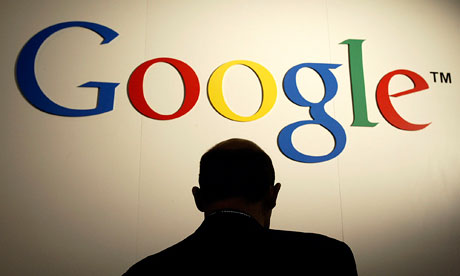
It was Cyber Monday deal that wasn't. On Monday morning as people took advantage of the online sales, Google appeared to be doing a little shopping of its own. The search giant had snapped up ICOA, a Wi-Fi firm for $400m, according to a press release and subsequent news stories. Only it hadn't.
The flurry of interest in ICOA started with a post on PRWeb.com,
an cut-price online news distributor that claims its news is seen by more than 2.75m people a day. Google had made the purchase to "further diversify it's [sic] already impressive portfolio of companies", said the release. It described ICOA's operations, offering Wi-Fi in 40 states in high traffic locations such as airports and restaurants and gave contact information for the company.
The story was picked up by the Associated Press â€" apparently without further checks. But almost as soon it appeared, it was being denied by Google and ICOA executives. News outlets, including the Associated Press, pulled or amended their stories. But not quickly enough to prevent the penny stock shares briefly leaping from 1¢ to 5¢. More than 3.321bn shares traded hands before the stock was frozen. ICOA trades about 926,000 shares on an average day.
Sam Hamadeh, chief executive of PrivCo, an analyst which specialises in private companies, said the press release looked like a classic scam. "I've seen similar stunts with biotech firms that are supposed to have made a new breakthrough but never anything so brazen."
In similar schemes, Hamadeh said, people buy shares ahead of the scam then sell out on the "news" before they are uncovered. But usually such frauds avoid high profile companies like Google.
Given that the size of the company and access to internet records as well as trading accounts, Hamadeh predicted the culprits would soon be identified. But the money may already be gone.
"I think they'll soon find out who did it, but they may also find that the money is now in a series of bank accounts in Nigeria," he said.
PRWeb's owner Vocus said in a statement: "PRWeb transmitted a press release for ICOA that we have since learned was fraudulent. The release was not issued or authorized by ICOA. Vocus reviews all press releases and follows an internal process designed to maintain the integrity of the releases we send out every day.
"Even with reasonable safeguards identity theft occurs, on occasion, across all of the major wire services. We have removed the fraudulent release and turned the matter over to the proper authorities for further investigation."
More established PR distribution networks like Business Wire and PR Newswire make rigorous checks with their clients, talking through the wording of a release in some cases, before issuing a release.
PR Newswire had to tighten up its checking procedures in 2010 after a hoax release falsely claimed President Barack Obama had ordered an investigation into General Mills' supply chain.
The established players have been undercut by new rivals like PRWeb in recent years. On its website PRWeb claims: "PRWeb 'democratized' news distribution, transforming the 'press release' from an expensive tool used by large corporations to an inexpensive yet highly effective way for organizations of all sizes to distribute their news on the Internet, increase their visibility online and attract customers."
No comments:
Post a Comment